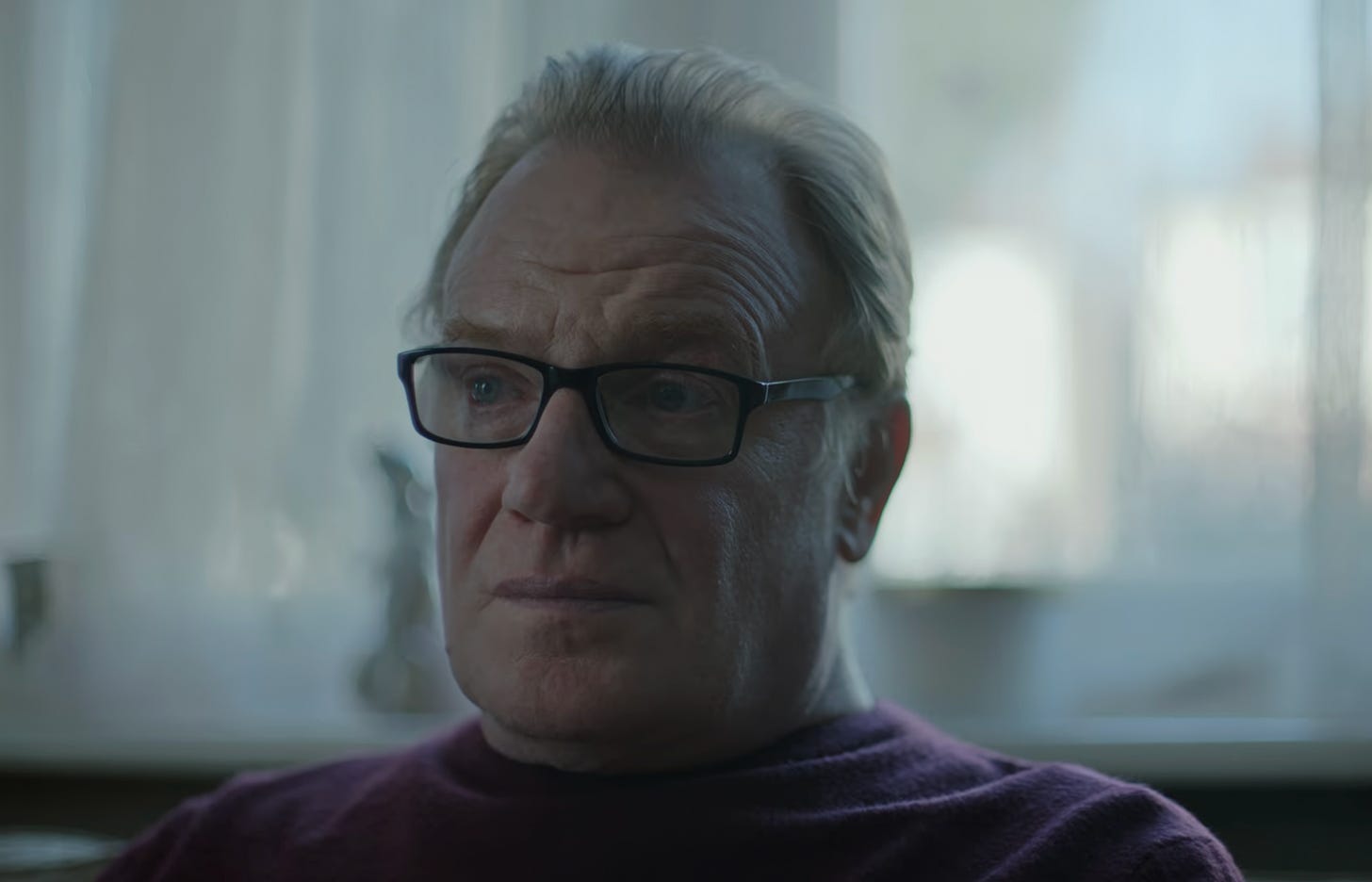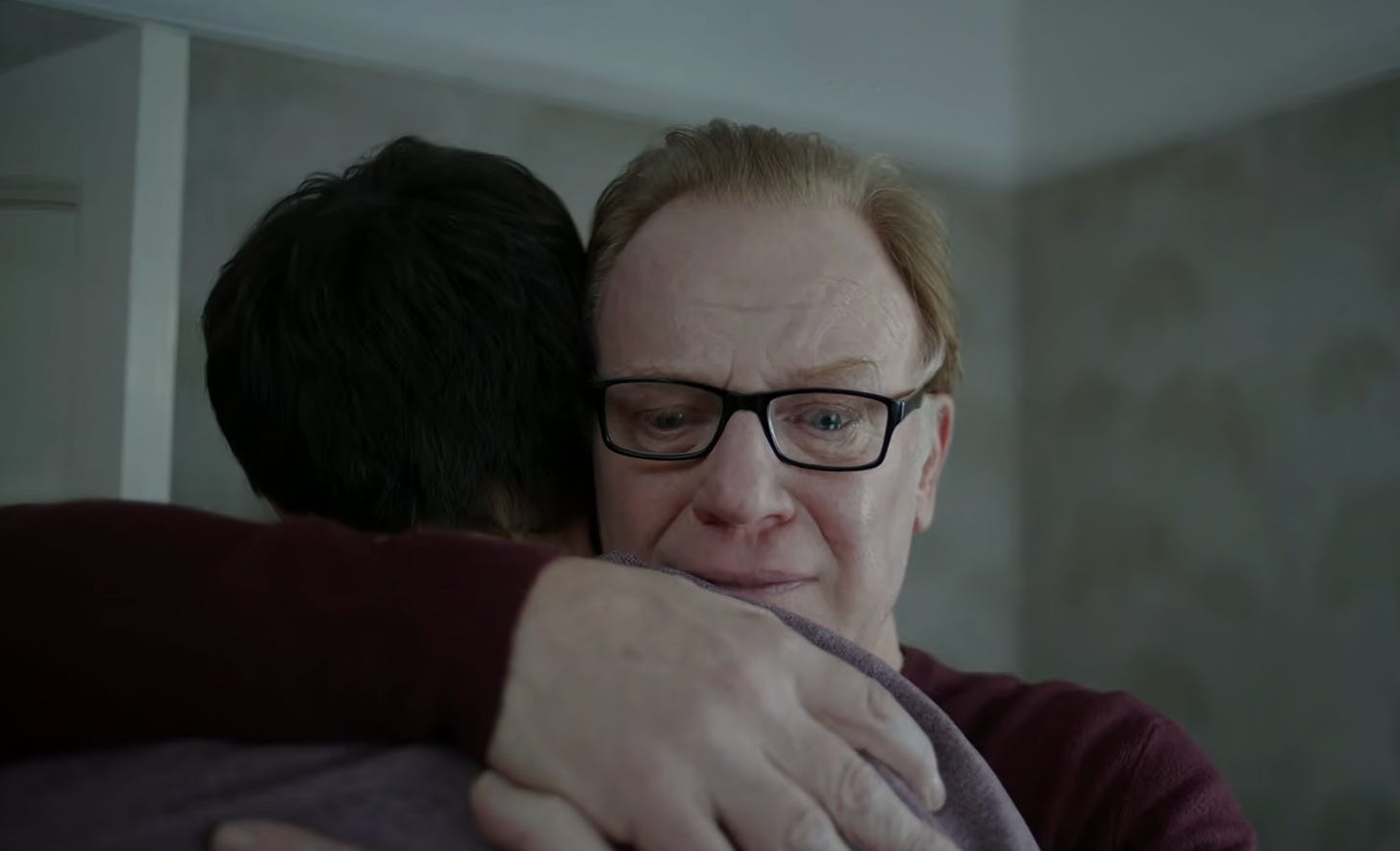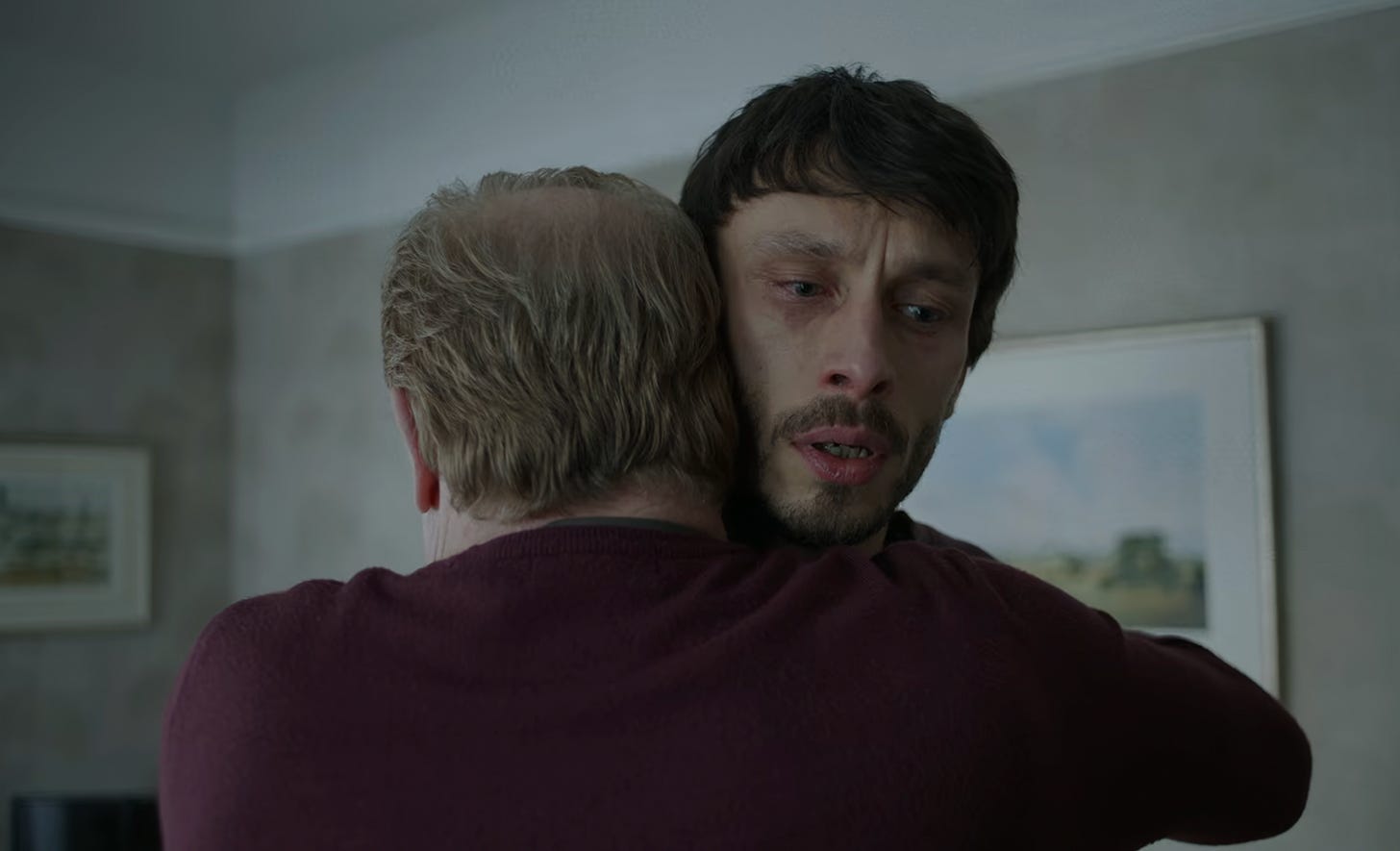“Have you watched Baby Reindeer?” I texted an actress friend of mine. “He's getting bad press for exposing his stalker,” she responded, referencing the series writer, creator and star Richard Gadd and some ancillary press he’s gotten around the series, which is based on his own life. There’s a particularly bizarre media fixation on figuring out who the characters in the series’ real-life counterparts are. My friend, who hadn’t yet seen the show, continued: “I saw a producer on Instagram talking about how that woman will never be able to have a normal life.”
I did my best to not be dismissive, but it bugged me a bit that this was the larger chatter around a show that I feel deserves far more critical thinking as a work of art rather than a media circus fixation. I think this is the consequence that comes with something as blatantly and unapologetically transgressive as this show becoming part of monoculture, which exists to flatten complex ideas so they are consumable by the largest amount of people possible. That, and the fact that many audiences today seek clear conclusions and thus pieces of media like Challengers and White Lotus, which seek to ask questions more than provide answers, can leave some audiences fixated on hunting for an explanation. For example: “White Lotus: Did Ethan and Daphne Have Sex?” and “The Ending of Challengers Explained.” In fact, just Google “Ending Explained” and you will see the cottage industry that is writing explainers: giving readers answers, or the idea that they’ve been given an answer.
So let’s forego that and instead zoom in on a small but seismic subplot revealed in the final episode of Baby Reindeer.
It has to begin with a rewind. In Episode 1, we are introduced to Donny, a down-on-his-luck comedian who is working as a bartender at a pub in London. In walks Martha, played by Jessica Gunning, a woman claiming to be a wealthy lawyer. She continues coming into the pub day after day. She shows up at his comedy show and interrupts him mid-set. She declares she’s in love with him. Martha stalks and preys upon Donny’s weaknesses throughout the ensuing episodes. After six months of this, Donny attempts to report Martha to the police. When the officer asks him why it took him so long to report her, we flash back to a few years earlier and are given further context into who Donny is. In an attempt to build his professional career, Donny had unwittingly befriended a successful television writer who began grooming him and eventually drugged and sexually assaulted him. Back in the present day, Donny reports Martha to the police and she ceases contact with him, only for Donny to discover that she has begun harassing his parents.
When we first meet Donny’s father, Gerry Dunn (played by Mark Lewis Jones), he’s on the phone with Martha. “I’ve told you, you bitch, I’ll come to London and cut your legs off.” How does Gerry respond when HR pulls him aside at work after Martha reported that he was a pedophile who had “fiddled her” when she was a child? “You know what your dad’s like,” Donny’s mom Elle, played by Amanda Root, tells him. “He doubled down on it. Told them he had a load of kids in a van outside.” This is the Gerry Dunn we meet. Hothead. Blowhard. Asshole.
When Donny goes to say goodbye, he lifts a hand to give his father a hug. His father nonchalantly swats it away and instead gives him a handshake. That’s Gerry Dunn, too. Cold.
In Episode 7, a video of Donny from his comedy set goes viral in which he details the guilt, shame and self-hatred he’s felt in the aftermath of both his rape and the stalking. Martha, in turn, threatens to tell Donny’s parents about his rape and his bisexuality, so Donny races home to come clean before Martha can. What results is, for me, the most gripping moment of the entire series. It made me immediately think of this Christy Turlington quote from The Super Models (one I think of often) in which she said: “Nothing really surprises me about anybody. I feel like even people you know, you just don’t know what they’re capable of.” This was one of those moments.
Donny sits before his parents. He tells them: “Look, I don’t know whether you’ve seen this video of me that’s been going around online.”
Donny’s mom lies, saying she’s not on social media and therefore hasn’t seen. Donny’s dad says he’s “not a fucking moron,” implying that of course he’s seen it.
“I don’t think I’m straight anymore, I think I’m maybe bisexual,” a visibly breaking-down Donny tells his parents. Gerry’s face journey throughout is Meghann Fahy in The White Lotus finale-level good. This is what deserves the media circus.
Donny continues: “And I think you’re gonna have a choice now between… between a bi son or a… or a gay son, whatever I become, or a dead one, because I can’t handle it anymore, keeping it in.”
He then reveals to them both that he was raped.
“I just feel so fucking embarassed,” he tells them. “And I guess I never wanted you to know because I didn’t want you to think less of me.” He sniffles. “You know…” He looks at his father with an expression of fear and reservation, but also yearning. “... As a man.” His mother tries to comfort Donny, but he bristles. “I just feel less of one having let something like that happen to me.”
“Would you see me as less of one?” Gerry asks, expressionless.
Donny looks up. “What?”
“Would you see me as less of a man?” Gerry asks again.
“Uh, well, no,” Donny responds, confused.
“I grew up in the Catholic Church,” Gerry tells his son.
“Uh, sorry, I… I… I don’t understand.”
His father just stares at him with a most pained expression that conveys guilt, shame and sadness.
It clicks. Donny lets out a small exhale. His father nods ever-so-slightly and looks down.
He looks like he has something to say but it’s caught in his teeth. Elle gets up, hugs her son and tells him how sorry she is. Gerry stands up. Donny reaches out his hand for a handshake. Gerry gives him a hug. Donny’s caught off-guard and resists the intimacy of the hug before succumbing moments later and resting his chin on his father’s neck. Another small exhale.
“I slept 12 hours that night and woke up to a new dawn,” Donny reveals after we cut to black. “I felt lighter somehow, amazed even by the sudden peace I found within myself.” He spends the next few days in Scotland with his phone off. For the first time, he opens up to his parents about his life. “I hadn’t felt so at ease in all my life. There was no need to be afraid anymore.”
Then he drops what I picked up as another bomb.
“There was never any need.”
The idea of this entire exchange is powerful for obvious reasons: Donny, in his pain, had never considered that others might have a similar guilt and shame through a similar experience, and among those others might be his own father. Why would it occur to him? But there’s another layer of powerful unlocked in that last line, which reveals the ability to recontextualize your own experience with new information considered. This sort of retroactive appraisal allows him to reinterpret his entire relationship with his father.
It’s complicated — life, right? — to think that a single moment can undo decades of thoughts and feelings, but it’s true. I know because it happened to me. I know it to be true. Mine wasn't quite a singular moment and was instead brought out during my father’s months-long battle with cancer, but I was able to renegotiate my relationship with the past in a way that felt healing. I learned to both forgive my dad and take on an understanding of him that I had previously been unequipped to. It was that latter learning that brought on the real paradigm shift. For the first time, I was able to recognize a person he might have been all along that I had previously been unable to see or receive.
Donny’s realization about his father, the shift in proximity brought about by him — for the first time ever — being fully honest and the ability to capitalize on that shift toward a better future added a whole other layer to both Donny as a character and the world of Baby Reindeer, a show that can be flattened to seem like a story solely about stalking and sexual abuse. This exchange between father and son — the exhales, the handshake, the hug, the chin on shoulder — showed a version of a father not often displayed. The brashness and the tenderness as well as an understanding of why the brashness. I loved this moment and loved that Richard Gadd added this, as I said earlier, small but seismic subplot. I hope Gadd will do some kind of long-form interview with someone who dives beyond the surface-level aspects of this deep and layered story that he and his fellow creators made. I haven’t been this affected by a father/son scene since Call Me By Your Name.













